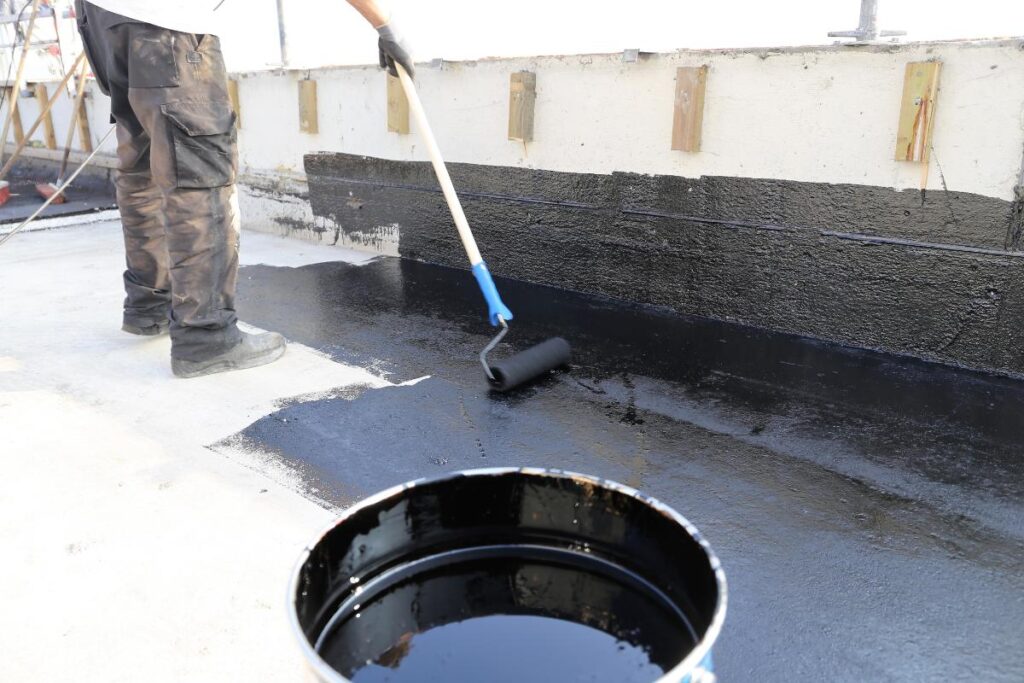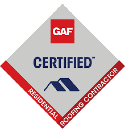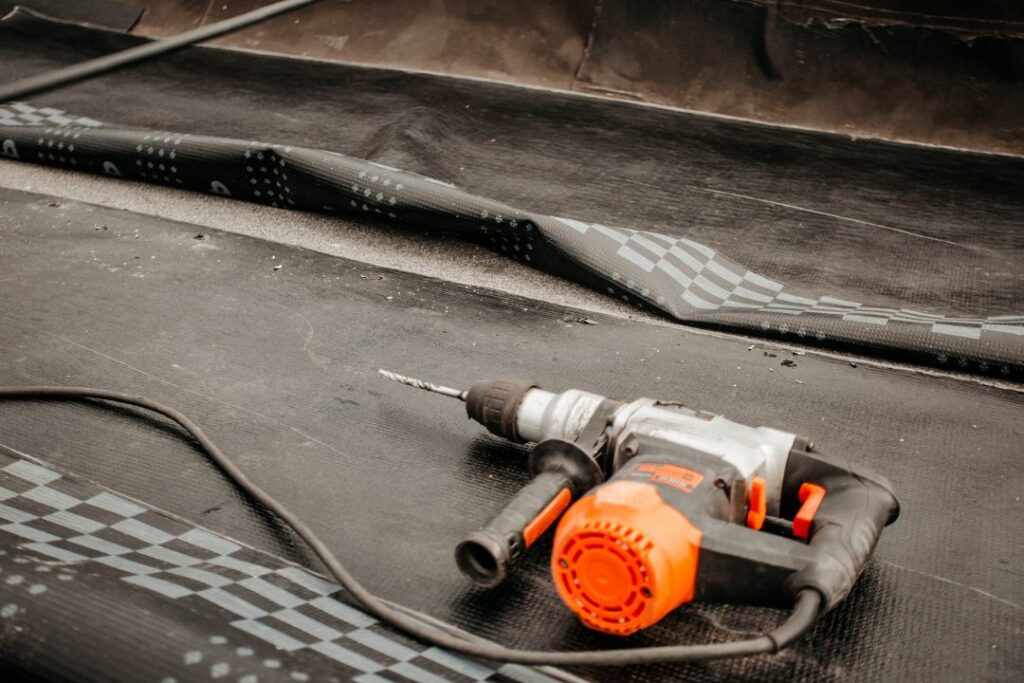Roofers in Hillsborough County, FL, know how unpredictable weather can be, which is why durable roofing solutions matter. Modified bitumen roofs, enhanced with asphalt and rubber, are a game-changer for long-lasting protection. They can handle the scorching heat, sudden storms, and even heavy foot traffic without breaking down.
At Mitchell Roofing Company, we’ve seen firsthand how this technology helps roofs stand the test of time. Asphalt ensures waterproofing, while rubber strengthens and adds flexibility to handle constant wear and tear.
Below, you’ll learn about the role asphalt and rubber play in creating durable modified bitumen roofs.
Waterproofing That Lasts
If left unattended, waterproofing problems can lead to significant structural damage, cause mold growth, and compromise a building’s integrity. Homeowners must understand the key issues that stem from inadequate waterproofing to make informed decisions and protect their investment.
Cracking and Water Penetration
One of the most common issues with poor waterproofing is cracking, which allows water to seep into the structure. These cracks often develop due to thermal expansion and contraction, varying loads, or substandard construction materials. If ignored, water penetration through cracks can weaken foundational components, eventually leading to costly repairs or irreversible damage.
Mold and Mildew Growth
When water infiltrates walls or ceilings, it creates an ideal environment for mold and mildew to thrive. This affects a home’s aesthetic quality and poses serious health risks, such as respiratory issues and allergic reactions. Prolonged exposure to these conditions can impact indoor air quality, making timely detection and remediation critical.
Deterioration of Construction Materials
Continuous exposure to moisture accelerates the deterioration of essential construction elements like concrete, wood, or metal components. This can result in corrosion, rotting, or spalling, severely reducing a building’s lifespan. Proper waterproofing solutions can prevent moisture-related degradation, preserving the structural stability and value of a home over time.
Rubber’s Flexibility Advantage
SBS (styrene-butadiene-styrene) rubber modifiers improve the elasticity of roofing materials. They allow the material to stretch and return to its original shape without damage. This makes roofs more resistant to cracks when temperatures change or buildings shift.
APP (atactic polypropylene) rubber modifiers create a strong yet flexible layer in the roofing material. These modifiers help the roof handle stress from thermal expansion and contraction. This flexibility extends the roof’s lifespan and protects it from harsh weather conditions.
Thermal Stability in Any Climate
Rubber helps asphalt stay strong and reliable in all kinds of temperatures. It prevents the surface from becoming too soft during hot summer days, which could cause cracks or damage. This stability ensures roads and rooftops remain safe and functional even during extreme heat.
When winter brings freezing temperatures, rubber in asphalt keeps it flexible. This flexibility stops it from becoming brittle and breaking apart. The added rubber works to create a material that performs well, no matter the climate or season.
Strength to Withstand Impact
Rubber improves the asphalt matrix by making it tougher and more durable. This extra strength helps the roof resist damage from punctures and impacts. This material allows roofs to withstand heavy foot traffic, hailstorms, and falling debris without breaking or losing their shape. It provides long-lasting protection that every homeowner can count on.
Roofers in Hillsborough County, FL, often recommend this durable option for homes and businesses. Mitchell Roofing Company’s team specializes in creating strong, impact-resistant roofs that stand up to harsh weather and wear. With our expertise, customers can enjoy peace of mind and a roof built to last.
Aging Gracefully Over Time
Rubber mixed with asphalt helps roofs stay strong and durable for years. This combination fights against oxidation, which can weaken materials over time. It also reduces wear and tear, keeping the roof in better shape for longer periods.
Homes with this type of roofing often maintain their looks and reliability. The blend slows down the effects of weather and stress, allowing roofs to stand up to aging. This makes it a smart choice for homeowners who want long-lasting protection.

Seamless Adhesion for Leak Prevention
Rubber-enhanced bitumen sticks securely to various surfaces, making it ideal for creating a strong, waterproof barrier. Its ability to bond tightly helps block water from seeping through cracks or gaps, ensuring lasting durability and preventing potential damage. This quality makes it reliable even in challenging weather conditions.
The improved adhesion also speeds up the installation process, saving time and effort for builders and homeowners. Workers can apply the material with greater ease, knowing it will form a dependable, leak-proof seal. This feature provides an effective solution for long-term protection against water-related issues.
An Eco-Friendly Roofing Solution
Using recycled materials in roofing is an innovative way to help the environment. Recycled rubber, such as tire-derived crumb rubber, is being used to create durable roofing products. This approach reduces waste in landfills and gives old materials a new purpose. It also supports the growing need for sustainable building solutions.
Modified bitumen systems offer another advantage for eco-friendly construction. These systems can often be recycled after their service life ends, further reducing environmental harm. Reusing materials saves resources and helps reduce the overall carbon footprint of building projects.
Contact Our Experienced Roofers in Hillsborough County, FL
Roofers in Hillsborough County, FL, know that modified bitumen roofs built with asphalt and rubber offer unmatched durability and performance. These materials work together to create a roof that stands up to extreme weather, daily wear, and environmental challenges. When you choose experts like Mitchell Roofing Company, you’re not just getting a roof; you’re investing in long-term protection and peace of mind.
Key Takeaways
How do asphalt and rubber enhance the durability of modified bitumen roofs?
Asphalt provides waterproofing to protect the roof from leaks, while rubber adds flexibility to handle wear and tear. Together, they create a strong, weather-resistant surface that withstands harsh conditions and heavy use.
What makes rubber important in modified bitumen roofing?
Rubber modifiers like SBS and APP improve flexibility, allowing the roof to stretch and recover without cracking. This adaptability helps the material withstand temperature changes, impacts, and structural shifting.
How do modified bitumen roofs handle extreme temperatures?
Rubber in the mix ensures thermal stability, preventing the roof from softening in heat or becoming brittle in cold. This resilience effectively handles Florida’s unpredictable weather and seasonal temperature shifts.
Can modified bitumen roofs resist impacts and heavy foot traffic?
Yes, adding rubber enhances the roof’s strength and durability, protecting it from punctures, hail, and other impacts. This makes it a reliable option for roofs that experience frequent wear or challenging weather conditions.
Are modified bitumen roofs environmentally friendly?
Modified bitumen systems often utilize recycled rubber materials, reducing landfill waste and promoting sustainability. They can also be recycled at the end of their service life, making them a greener choice for eco-conscious homeowners.




